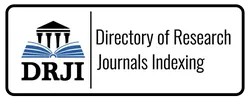DOI
https://doi.org/10.47689/2181-1415-vol5-iss5/S-pp48-55Kalit so‘zlar
xorijiy til , model , qobiliyat , strategiya , pragmalingvistik komponentlar , vazifa , muloqot ko‘nikmalarini o‘zlashtirishAnnotasiya
Maqolada ingliz tilini o‘qitish doirasida pragmatik kompetentsiyaning evolyutsiyasi va rivojlanish bosqichlari muhokama qilinadi, uning ona tilini o‘rganish va ingliz tilini ikkinchi yoki chet tili (ESL/EFL) pragmatikasi sohasidagi yutuqlar bilan yaqin aloqasi aniqlanadi. Ushbu kontekstlarda pragmatik o‘qitishning integratsiyasi ham batafsil ko‘rsatilgan. Bundan tashqari, maqolada kommunikativ kompetentsiyalarning turli xil modellari atroflicha ko‘rib chiqilgan va tahlil qilingan. Ushbu tahlil orqali ESL va EFL sharoitida pragmatik kompetentsiyani rivojlantirish, tushunish va amalga oshirishdagi muvaffaqiyat va muammolarni o‘rganilgan.
Ko'chirildi
Bibliografik manbalar
Bachman, L. F., & Palmer, A. S. (2010). Language testing in practice. Oxford: Oxford University Press.
Bardovi-Harlig, K. (2000). Pragmatics and second language acquisition. In R. B. Kaplan (Ed.), Oxford handbook of applied linguistics (pp. 182–192). Oxford: Oxford University Press.
Bardovi-Harlig, K. (2011). Exploring the pragmatics of interlanguage pragmatics: Definition by design. In A. Trosborg (Ed.), Handbook of Pragmatics: Pragmatics across languages and cultures (pp. 219-260). Berlin: Mouton de Gruyter.
Bespalova, S. (2003). Kommunikativno-prakticheskaya organizatsiya obucheniye inostrannim yazikam: Avtoref. diss…. ped. fanlar. nomz. Saransk.
Bouton, L. (1994). Conversational implicature in the second language: Learned slowly when not deliberately taught. Journal of Pragmatics, 22, 157-167.
Celce-Murcia, M. (2007). Rethinking the role of communicative competence in language teaching. In E. A. Soler & M. P. Safont Jordà (Eds.), Intercultural language use and language learning (pp. 48-49). Springer.
Ishihara, N., & Cohen, A. (2022). Teaching and learning pragmatics: Where language and culture meet. New York, NY: Routledge.
Jalolov, J. J., Makhkamova, G. T., & Ashurov, S. (2015). English language teaching methodology. Tashkent: Fan va texnologiya.
Kasper, G., & Rose, K. (2002). Pragmatic development in a second language. Oxford, UK: Blackwell.
Kim, Y., & Taguchi, N. (2015). Promoting task-based pragmatics instruction in EFL classroom context: The role of task complexity. Modern Language Journal, 99, 656–677.
O‘Keeffe, A., Clancy, B., & Adolphs, S. (2011). Introducing pragmatics in use. London, England: Routledge.
“O‘zbekiston Respublikasida xorijiy tillarni o‘rganishni ommalashtirishni sifat jihatidan yangi bosqichga olib chiqish chora tadbirlari to‘g‘risida”gi 2021 yil PQ–5117–son qarori.
Purpura, J. (2004). Assessing grammar. Cambridge, England: Cambridge University Press.
Robinson, P. (2011). Task-based language learning: A review of issues. Language Learning, 61, 1–36.
Savignon, S. J. (2002). Communicative language teaching: Linguistic theory and classroom practice. In S. J. Savignon (Ed.), Interpreting communicative language teaching: Contexts and concerns in teacher education (pp. 1–27). New Haven, CT: Yale University Press.
Taguchi, N. (Ed.). (2019). The Routledge handbook of SLA and pragmatics. New York, NY: Routledge.
Usó-Juan, E., & Ruiz-Madrid, M. N. (Eds.). (2007). Pedagogical reflections on learning languages in instructed settings. Cambridge, England: Cambridge Scholars Press.
Zolotov, P. Y. (2020). Metodika formirovaniya pragmaticheskoy kompetensii studentov na osnove korpusnix texnologiy: Avtoref. diss…. ped. kand. nauk. Tambov.
Yuklashlar
93 33Nashr qilingan
Qanday qilib iqtibos keltirish kerak
Nashr
Bo'lim
Litsenziya
Mualliflik huquqi (c) 2024 Марат Эшанов (Автор)

Ushbu ish Creative Commons Attribution 4.0 Worldwide.





















